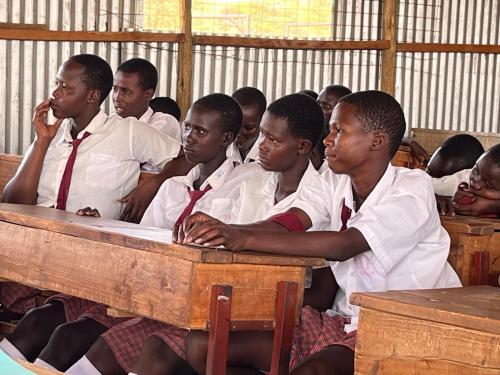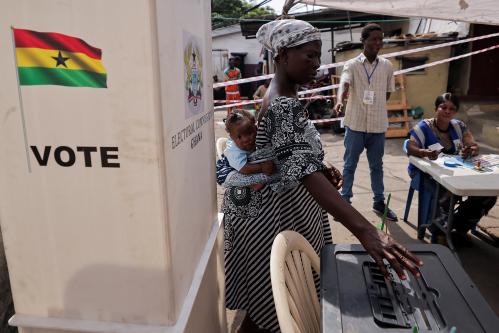Mali and the DRC attempt to reverse unfavorable mining deals
In recent years, African countries like Mali and the Democratic Republic of the Congo (DRC) have tried to rewrite unfavorable mining contracts that leave the states short on generated revenue as well as recover funds owed to them—concerns that the pandemic has only exacerbated. Last year, Mali’s auditor general found that mining companies like Barrick Gold and Resolute Mining had not been paying dividends to public shareholders that were part of the original contracts. Last September, Barrick Gold ended up making its first dividend payment in 15 years since the opening of the Loulo Mine. In addition, SOMISY, a subsidiary of Resolute Mining, agreed to begin dividend payments once profitable.
In 2018, the DRC introduced a new mining code that raised levies on minerals such as cobalt, copper, and gold. The new code has been met with resistance: Mining company Glencore, the biggest Western company operating in the country, has yet to accept the new code and its royalties. There has also been backlash to regulation tightening elsewhere in the continent. Australian iron ore company Sundance Resources is planning to enter international arbitration proceedings against the Republic of the Congo after the government cancelled the Nabeba iron ore project in December of last year.
The possibility of success in many of these efforts is unclear given past judicial rulings against African countries. For example, just on Monday, a British court dismissed Sierra Leone’s dispute of a 2020 International Chamber of Commerce ruling involving a 2019 SL Mining arbitration filing. The British court’s ruling implies that Sierra Leone will pay SL Mining a partial reward and reach a settlement over the arbitration within three months.
COVID-19 vaccines move forward, albeit with challenges; new Ebola outbreak emerges in Guinea and the DRC
COVID-19 deaths in sub-Saharan Africa passed 100,000 this week, moving the region’s fatality rate above the global average of 2.3 percent to 2.6 percent during the “second wave” of the disease. Richard Mihigo, coordinator of immunization programs at the World Health Organization’s Africa office, noted recently that the fact that the rise in deaths has been quickest in countries like Zimbabwe, Mozambique, and Malawi might indicate further spread of the South African variant of the virus, known as 501Y.V2. Gaps in testing might still be masking the full extent of the spread of all the variants of the virus too, as Africa CDC Director John Nkengasong noted last week, saying “Are we counting all the deaths on the continent? No … but most people on the continent do know somebody who has died of COVID during this second wave.”
Recent news that the Oxford-AstraZeneca vaccine provides limited resistance to the 501Y.V2 variant forced authorities in South Africa to scramble for a vaccine that could offer more protection. By Tuesday night, the country had received 80,000 doses of the Johnson & Johnson vaccine, allowing it to move forward with its vaccination program. President Cyril Ramaphosa, who received that vaccine this week, also noted that the country has secured 20 million doses of the Pfizer vaccine and is looking into China’s Sinopharm and Russia’s Sputnik V vaccines. Meanwhile, other countries in the region have started their vaccination programs, with Senegal, Zimbabwe, Egypt, and Equatorial Guinea receiving the Chinese Sinopharm vaccine.
Procurement and distribution of vaccines overall has been both challenging and controversial. On Wednesday, United Nations Secretary-General Antonio Guterres criticized developed-country efforts to secure vaccines first, calling the distribution process “wildly uneven and unfair,” and noting that just 10 countries have administered 75 percent of all vaccinations. Emphasizing that point, on Thursday, February 18, French President Emmanuel Macron stated that the current uneven distribution of doses demonstrates an “unprecedented acceleration of global inequality,” and highlighted that some countries were being charged two or three times the price paid by the European Union and other developed countries.
While some countries are scrambling to obtain the vaccines, Tanzanian President John Magufuli has rejected any need for them. According to The Washington Post, Magufuli has been promoting herbal cures and claims that his country has been “COVID-free” since three days of national prayer in June of last year. Notably, the country has not released numbers on the virus since April 2020 and reports on the ground, including from the U.S. embassy in Dar-es-Salaam, dispute the claim of zero cases, instead stating the numbers are on the rise.
Meanwhile, new outbreaks of Ebola have surfaced in Guinea and the Democratic Republic of the Congo (DRC). Already, vaccines have been distributed to both countries, with another 11,000 expected in Guinea this Sunday from the European Union and a further 8,000 from the U.S. not long after. On Tuesday, the United Nations announced it would be releasing $15 million to both countries in emergency relief funds. The two countries and their neighbors are on high alert given that over 11,000 people died in the 2014-2016 outbreak in West Africa and thousands have perished in a series of outbreaks over the last decade in the DRC and surrounding area.
For more on supporting sub-Saharan Africa’s health systems, see the February 12 AGI event with John Nkengasong, director of the Africa Centers for Disease Control as well as his Foresight Africa 2021 essay.
UN seeks reinforcements in the Central African Republic while France confirms commitment to military operations in Sahel
Despite the second anniversary of a peace agreement between the government of the Central African Republic and rebel groups, the situation in the country has been deteriorating. On Wednesday, February 17, United Nations Secretary-General Antonio Guterres recommended increasing the U.N. peacekeeping presence in the Central African Republic, calling for an additional 3,700 soldiers and police to reinforce the forces and assist the peacekeeping mission. Guterres stresses the reinforcements are “not intended as a means for a military solution to the present challenges … [nor] a substitute for the national authorities’ primary responsibility to advance the peace process and protect the population.” The United Nations Multidimensional Integrated Stabilization Mission in the Central African Republic (MINUSCA—abbreviated from the French) currently deploys nearly 15,000 personnel, 11,000 of which are military, to the region. Any further increases in the mission’s military and police deployment requires approval by the U.N. Security Council.
In other security news, on Tuesday, French President Emmanuel Macron ruled out an immediate reduction to his country’s 5,100 soldiers currently fighting armed combatants in the Sahel. Eight years after sending military forces to assist Mali in fighting rebel groups, the intervention has cost France billions of dollars and killed 55 French soldiers. Conflict in the region has persisted for a decade and permeated the borders of Mali, Niger, and Burkina Faso, resulting in the deaths of thousands and the displacement of millions. In fact, experts believe Mali’s inability to control the violence led to discontent with then-President Ibrahim Boubacar Keïta, which resulted in a coup last August.
Domestic pressure in France for a drawdown has led to calls to review the country’s strategy and, ultimately, search for an exit strategy. In response to this pressure, Macron argued that a rushed exit from the region would be a mistake due to lingering instability there. In his remarks, he emphasized France’s commitment to its partners in the Sahel, stating that any changes in military deployment “will result first of all from a collective discussion with our Sahel partners … They will be based on the results obtained and the degree of engagement from our partners.” Subsequently, he outlined the launch of additional operations by a consortium of international forces—including the Czech Republic, Estonia, and Sweden, (who have already sent troops) and Hungary, Greece, and Serbia (who have stated their willingness to do so).
Brookings Africa Growth Initiative Nonresident Distinguished Fellow Ngozi Okonjo-Iweala to head the World Trade Organization.
This week, Ngozi Okonjo-Iweala was appointed the new head of the World Trade Organization. She will be first woman and first African to hold the position. Okonjo-Iweala was also Nigeria’s first female finance minister and first female foreign affairs minister. She had a 25-year career at the World Bank and served as its managing director of operations from 2007-2011.
For more on Okonjo-Iweala’s story as well as others by women leaders around the world, join us on March 4 for the launch of her book—co-authored with Julia Gillard, also a Brookings nonresident distinguished fellow and former prime minister of Australia—”Women and Leadership: Real Lives, Real Lessons.”
The Brookings Institution is committed to quality, independence, and impact.
We are supported by a diverse array of funders. In line with our values and policies, each Brookings publication represents the sole views of its author(s).






Commentary
Africa in the news: Mining disputes, COVID-19 and Ebola updates, and an increase in foreign troops in CAR and the Sahel
February 20, 2021